Difference Between Espresso and Coffee: Which Brew Fuels Your Body and Mind?
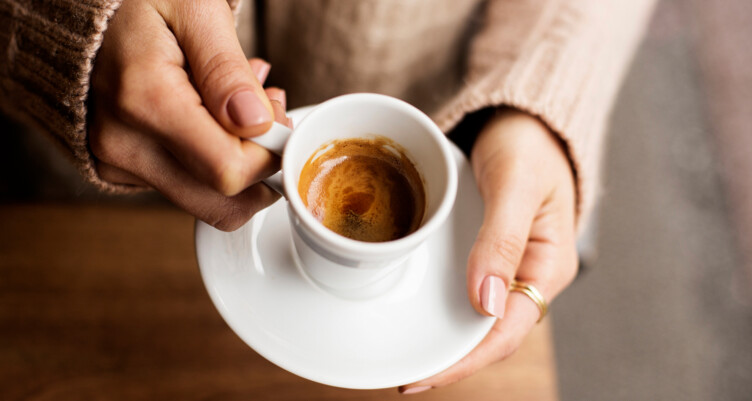
- Espresso and coffee differ in brewing method, flavor, and caffeine concentration. Espresso is more concentrated, while coffee offers a smoother, larger serving.
- Ounce for ounce, espresso is more potent in terms of caffeine, but coffee provides more total caffeine per serving.
- Espresso and coffee are rich in antioxidants and can support metabolism and energy levels.
Espresso and coffee are two of the world’s most beloved drinks, but they’re not the same. One is bold and concentrated, while the other is smooth and sippable. But which one has more caffeine? Which is better for energy and focus? In this guide, we’ll break down the key differences between coffee and espresso—so you can pick the perfect brew for your needs.
Espresso and coffee are two popular ways to fuel your body and mind, but they aren’t the same. Both come from the same beans, but the brewing process changes everything. Coffee is brewed slowly with coarsely ground beans, creating a lighter drink you can sip and enjoy. Conversely, espresso uses high pressure and finely ground beans to produce a small, concentrated shot that delivers caffeine fast.
The difference between coffee and espresso isn’t just about taste. It’s about how each brew fits your lifestyle and supports your energy. If you like a calm, gradual start, a delicious Bulletproof coffee might suit your morning coffee routine. If you need a quick boost to stay sharp, espresso can deliver. Knowing how each one supports your body and mind lets you choose the right fuel for your day.
Espresso vs Coffee: A Quick Comparison
Espresso and coffee may start from the same beans, but the brewing method transforms the final cup. Espresso uses high pressure and fine ground to produce a concentrated shot with bold flavor. Coffee, brewed with coarser grounds and more water, creates a larger, smoother drink that’s often milder in taste.
The caffeine content also varies between the two. A single shot of espresso contains around 63 milligrams of caffeine, while a standard cup of coffee holds 80-100 milligrams.[1] Despite its smaller size, espresso delivers a fast, intense caffeine hit, while coffee provides a more gradual energy release.
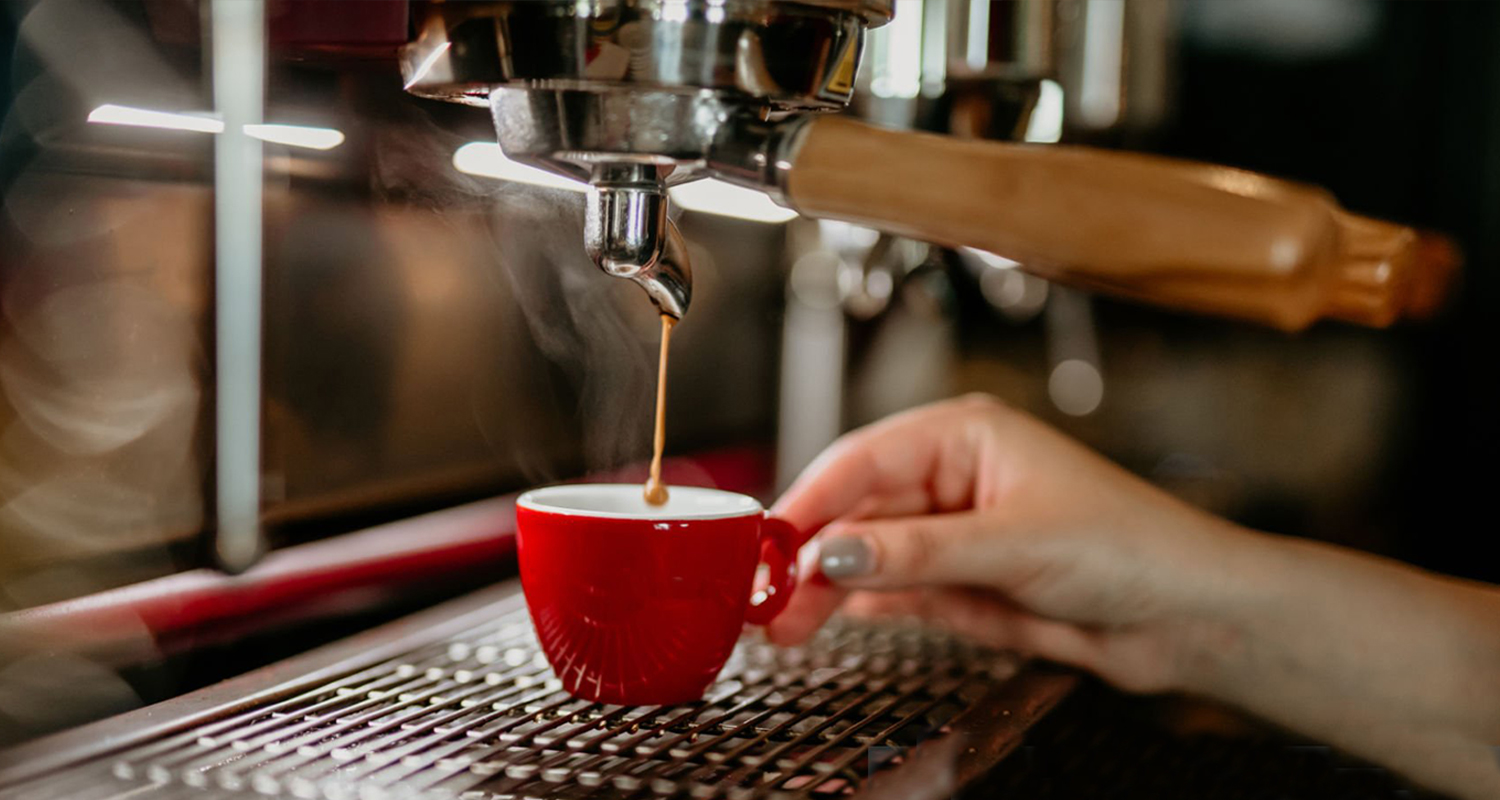
How is Espresso Made?
Espresso begins with finely ground coffee beans packed tightly into a portafilter. A machine forces hot water through the grounds at high pressure, extracting rich flavors and oils in 20-30 seconds. This process produces a small, strong shot topped with a layer of crema – the light, frothy foam that forms naturally during brewing.
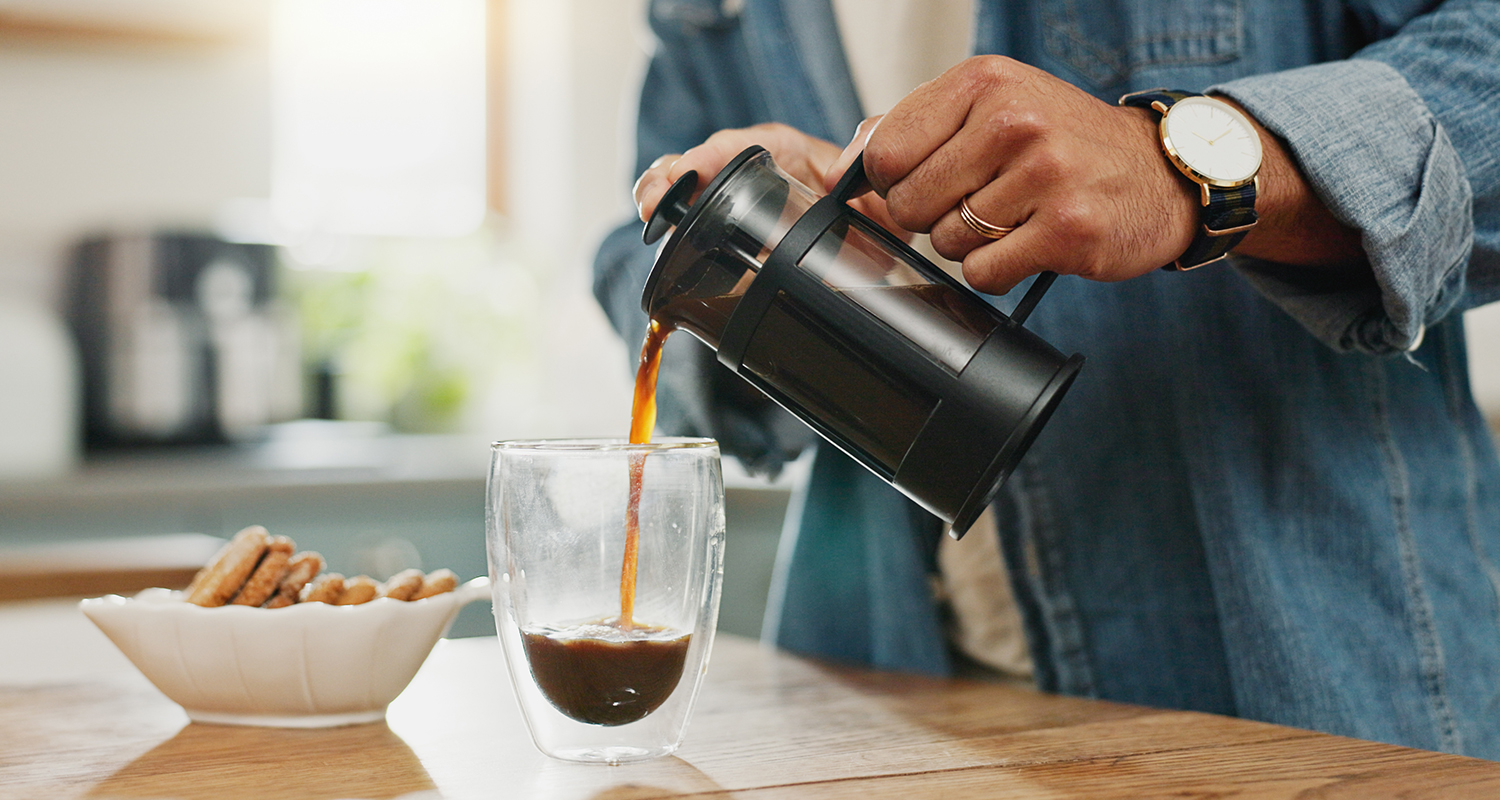
How is Coffee Made?
Brewing coffee is a slower process. Coarsely ground beans sit in a filter while hot water drips or pours over them. The water gradually steeps through the grounds, drawing out flavor over 4-5 minutes. This method creates a larger, less concentrated cup, highlighting the beans’ subtle flavors and aromas.
The difference in brewing methods affects the flavor and texture of espresso and coffee and also plays a key role in how much caffeine ends up in your cup.
Espresso Caffeine vs Coffee Caffeine
Caffeine is the key reason many drink espresso or coffee to start their day. Both drinks deliver an energy boost, but their brewing methods directly influence the coffee’s caffeine content. Understanding the difference between coffee and espresso caffeine can help you decide which drink best supports your needs.
How Much Caffeine Is in a Cup of Coffee?
How much caffeine is in a cup of coffee can vary based on several factors, but an 8-ounce cup contains 80 to 100 milligrams of caffeine on average. The exact amount depends on the type of beans, the brewing method, and how long the coffee steeps.
Drip coffee tends to have higher caffeine content due to the longer brew time, allowing for more extraction. Medium roast coffees often have slightly more caffeine by weight than darker roasts, but the difference is minimal for most drinkers. Coffee’s larger serving size provides a steady release of caffeine, making it a great option if you prefer to sip gradually throughout the day.
How Much Caffeine Is in a Shot of Espresso?
A single 1-ounce shot of espresso contains about 63 milligrams of caffeine. While this amount may seem lower than a cup of coffee, espresso’s concentrated nature means you consume it much faster. If you drink a double shot (commonly used in lattes or Americanos), you’re looking at around 126 milligrams of caffeine. Despite the smaller volume, espresso’s quick caffeine delivery can provide a faster, more noticeable energy boost.
When comparing espresso vs coffee, the caffeine difference often comes down to serving size. A single espresso shot has less caffeine than a full cup of coffee, but ounce for ounce, espresso is much stronger. Whether you choose espresso or coffee depends on how you prefer to consume your caffeine and how quickly you want that energy boost.
Beyond caffeine content, espresso and coffee each offer unique health benefits that can support your energy, metabolism and overall well-being in different ways.
Benefits of Espresso vs Coffee
Both espresso and coffee offer health benefits that can support your body and mind. They share many of the same properties, but their consumption methods and effects on metabolism and energy levels differ. Whether you prefer a bold shot of espresso or a smooth cup of coffee, each can fit into a healthy lifestyle as long as you don’t overdo it.
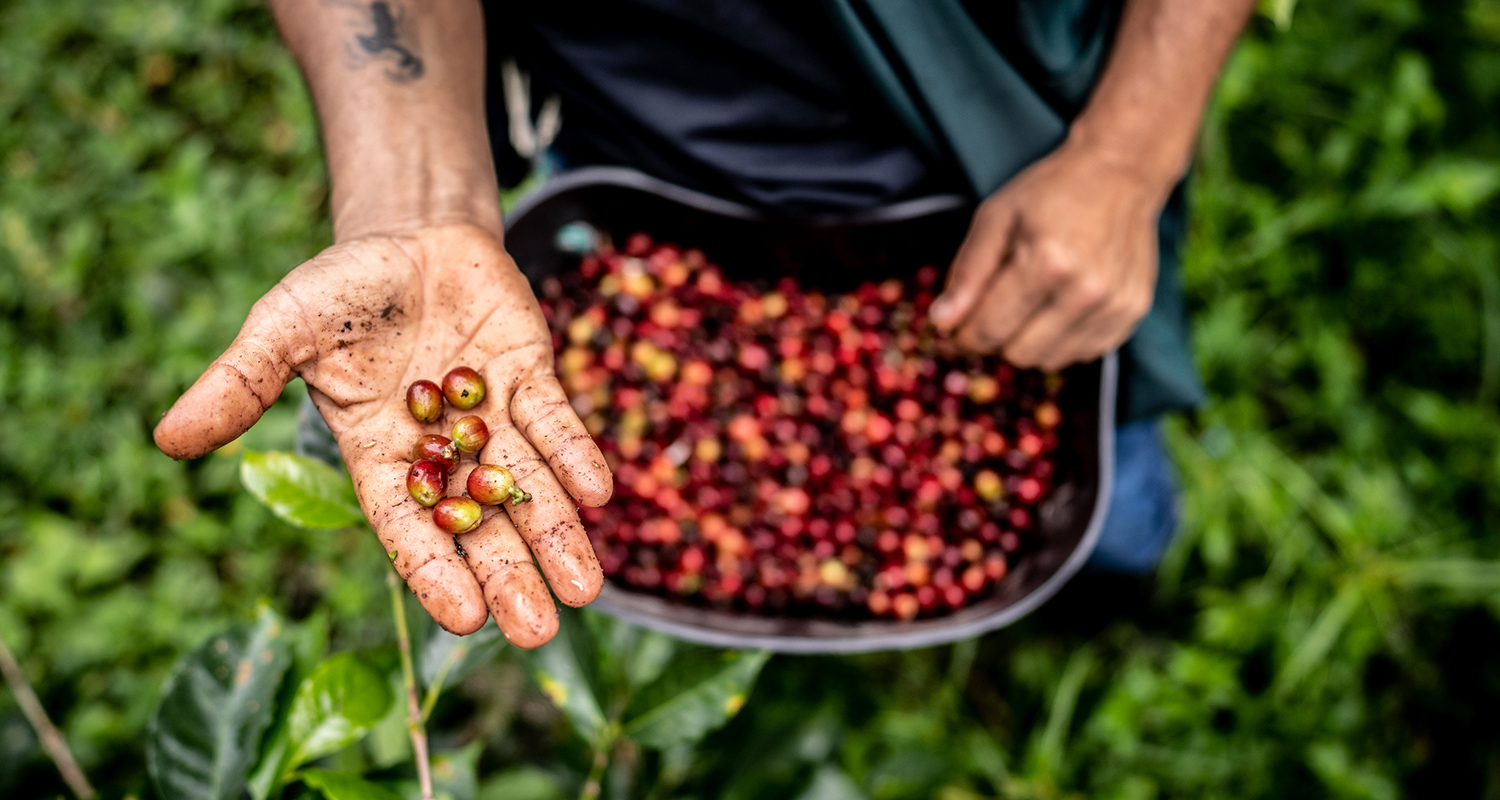
Antioxidants and Nutrients
Espresso and coffee pack antioxidants that help protect your cells from damage caused by free radicals.[2] These antioxidants may support heart health and promote overall well-being.[3] Since espresso is more concentrated, it delivers antioxidants in a smaller serving, while coffee provides a steady stream over a longer period. Both brews also contain essential nutrients like magnesium and potassium,[4] which contribute to energy production and muscle function.[5]
Metabolism and Energy Support
Caffeine plays a role in promoting metabolism by stimulating the central nervous system.[6] This can lead to better alertness and physical performance.[7] Espresso, with its quick caffeine delivery, may offer faster metabolic support, making it a great pre-workout option or mid-day energy boost. With its more extensive volume, coffee provides a slower and more sustained release of caffeine, supporting focus and energy throughout the day.
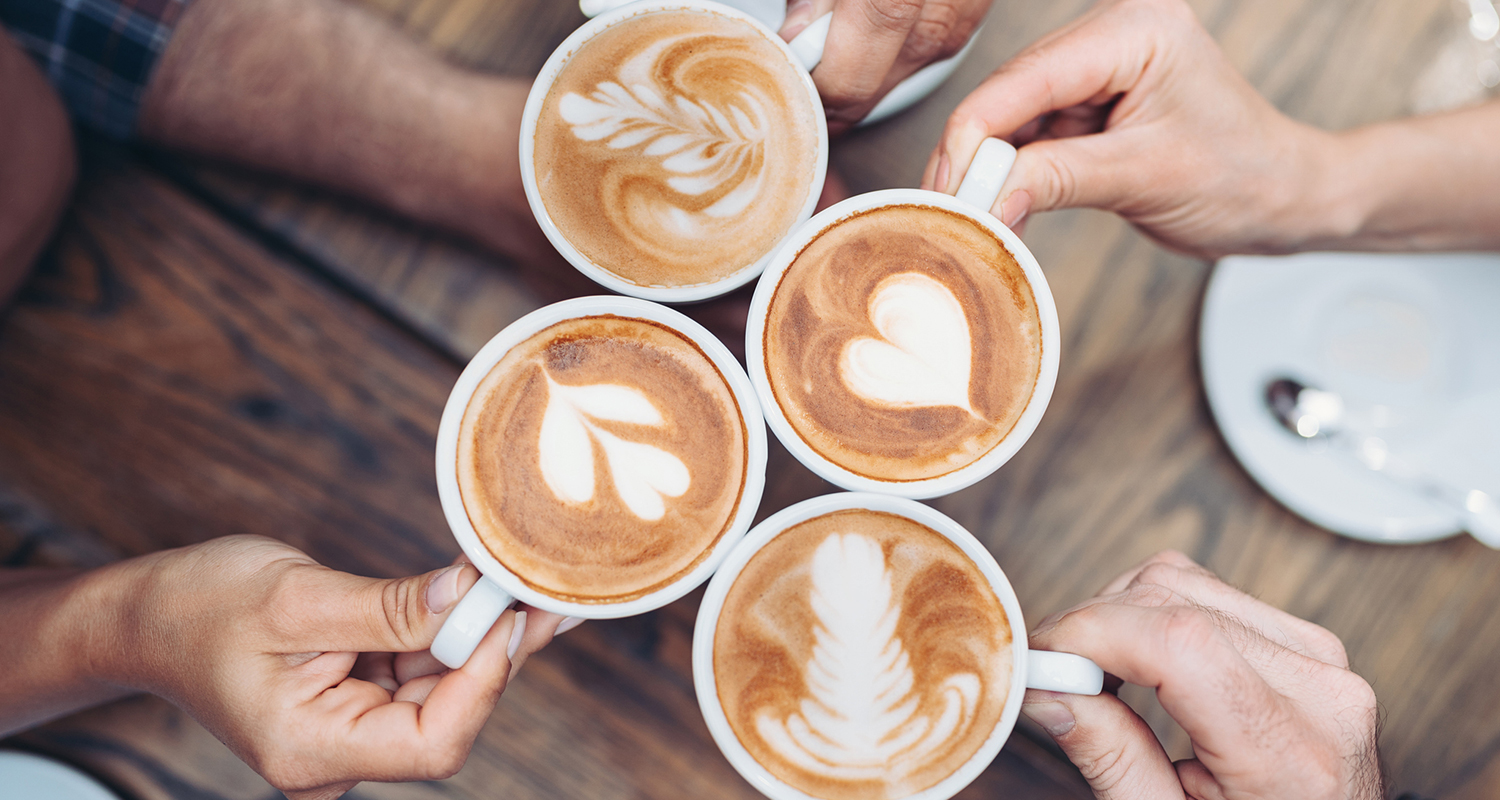
Lifestyle
Espresso’s small serving size and quick preparation make it a great fit for busy lifestyles or when you need a fast energy boost without drinking a full cup. Espresso serves as the base for popular beverages like lattes and cappuccinos, adding versatility to your enjoyment. On the other hand, coffee fits well with slower mornings or with friends, allowing you to sip and enjoy over time. Cold brew and drip methods can also provide larger quantities to stay energized throughout the day.
Choosing between espresso and coffee often depends on how you consume your caffeine and what kind of support your body needs.
FAQs on Espresso vs Coffee
Is espresso healthier than coffee?
Espresso and coffee offer similar health benefits, including antioxidants that support heart health and overall wellness.[8] Since espresso is more concentrated, you consume less liquid and fewer calories if you drink it plain. However, the health benefits of both drinks depend more on how you consume them – adding sugar or cream can reduce their positive effects.
Does espresso have more caffeine than coffee?
Yes and no! Ounce for ounce, espresso has more caffeine, but because coffee servings are larger, a full cup of coffee delivers more total caffeine than a single espresso shot.
A single shot of espresso (1 oz) contains about 63 mg of caffeine, while an 8 oz cup of coffee typically has 80-100 mg. Espresso provides a quick energy boost, while coffee offers a longer-lasting effect.
Which is better for weight management–espresso or coffee?
Both espresso and coffee can support weight management by promoting metabolism.[9] Espresso’s concentrated nature means you get the same benefits with less liquid. Coffee’s larger volume can help with hydration and a sense of fullness, making it easier to avoid snacking.
Does espresso taste stronger than coffee?
Yes, espresso has a bold, more intense flavor compared to coffee. The high-pressure brewing process extracts more oils and flavors from the beans, creating a rich, concentrated taste. On the other hand, coffee tends to have a smoother and milder flavor profile, especially when brewed using methods like drip or pour-over.
Can I drink espresso every day?
Yes, drinking espresso daily is generally safe for most people, if caffeine intake stays within recommended limits (about 400 mg daily for most adults). One or two shots of espresso per day fit well within this range. As with coffee, moderation is key to avoiding potential side effects like jitteriness or sleep disturbances.[10]
Which is easier to make at home – espresso or coffee?
Coffee is easier to make at home for most people since it only requires a basic drip coffee maker, French press or pour-over setup. Espresso requires specialized equipment like an espresso machine or Moka pot to achieve the proper pressure and extraction. While espresso machines can be an investment, simpler tools like AeroPress or stovetop brewers offer affordable alternatives.
Which is better for energy—espresso or coffee?
If you need a fast caffeine hit, espresso is best. If you prefer a steady energy release, coffee is better. Coffee’s larger serving size allows for longer-lasting energy, while espresso’s quick hit can support focus and alertness.
Sign up for early access to sales, product launches, the latest Bulletproof news and more!



